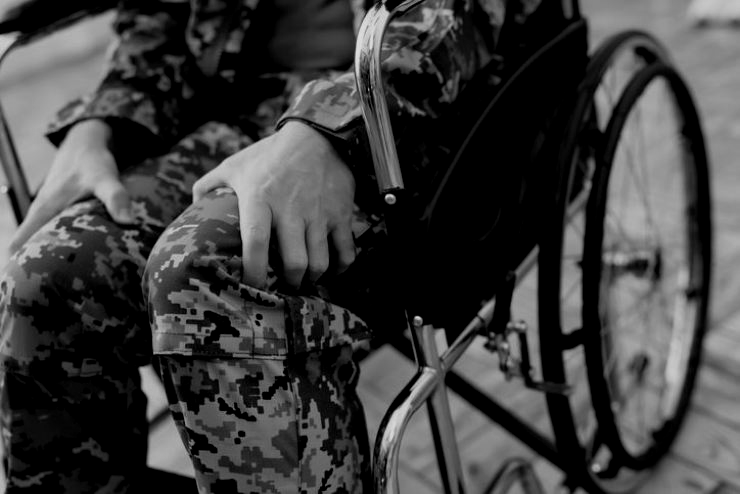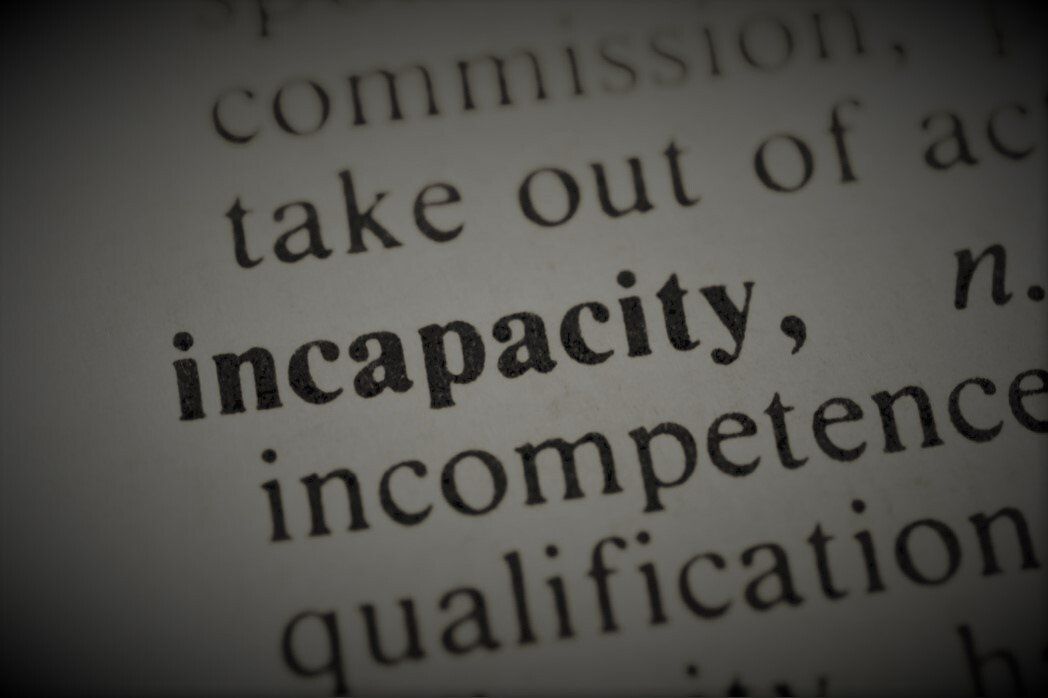Permanent Impairment Payments
Corey Stamp • Apr 12, 2021
Permanent Impairment Payments
Suppose you’re a former or current ADF member with a condition or injury as a result of your ADF service, and that condition or injury has left you with some permanent impairment.
In that case, you may be entitled to receive compensation (permanent impairment payment) from DVA under the Military Rehabilitation and Compensation Act 2004.
How much you’ll be compensated will depend on the level of mental and/or physical impairment that results from all of your accepted conditions and the impairment’s effect on your lifestyle.
The impairment from your accepted conditions has to be assessed at ten impairment points or more to be eligible for PI compensation. Exceptions occur in the case of loss of taste or smell, loss of fingers or toes and hearing loss where only five impairment points are required.
Whether taken as a lump sum or as periodic payments, PI payments are tax-free.
How to Make a PI Compensation Claim.
To lodge a permanent impairment claim, you first need to fill out DVA Form D2049. You can obtain the claim form from your nearest DVA office or claim online via DVA’s MyService application.
If you find any part of the form difficult to complete, it’s advisable to get help from a financial adviser or practicing lawyer.
A delegate of the Military Rehabilitation and Compensation Commission (MRCC) will be responsible for investigating your claim.
Providing supporting evidence and documentations will boost the likelihood of your claim being determined fast and in your favour.
The delegate may request you to undergo a medical examination. Don’t fret; the MRCC will cater to all costs, including travel and accommodation.
What to Consider Before Making a PI Claim.
You may be eligible to make a compensation claim to DVA if you have developed a mental or physical condition due to your service.
Navigating the claims process can be a tricky route if you don’t know where to start.
Here’s what you should think about before making a DVA claim:
- Get a diagnosis from a qualified medical professional. Your GP is okay for physical conditions, but a psychiatrist must diagnose you for mental health issues.
- Prove your condition or injury was caused by your service. Were you injured while serving? If yes, gather service medical records that display the date and nature of the injury. Some conditions may develop years after you’ve left service. As long as they can be linked back to your service, it may still be possible to claim.
- Have all the relevant supporting documentation ready. This may include incident reports, witness statements, specialist reports, radiology reports, service records and treatment records from your doctor.
- Understand the Act you are eligible to claim under. Although you could lodge a claim under at least one Act, you could be covered up by up to 3 different pieces of legislation. The date of recruitment, type of service and when your injury developed can help you determine which Act applies.
- Get help from an Advocate. Working with a professional Advocate will give you the best chance of making a successful DVA claim. They will ensure you have all the evidence and documentation in order and guide you through the process.
Costly Mistakes to Avoid When Making a PI Claim With the DVA:
- Banking on a coordinator or delegate to fill your claim form.
- Thinking that a delegate has your best interests at heart.
- Using an unqualified financial adviser.
- Disregarding independent specialist medical advice.
- Agreeing to an offer of compensation without seeking independent legal advice.
At Veteran Wealth, we value the service and sacrifice of our veterans, defence personnel and their families.
Our core mission is to ensure that all the great servicemen and women, past and present, are financially empowered to secure a better future for themselves and their families.
If you have a query, want some more info or would just like to speak to a professional, contact us, and someone will be in touch with you as soon as possible.
Do let us know via email at support@veteranwealth.com.au or phone 1300 911 619 if you would like to discuss any or all of the above issues.

By Corey Stamp
•
11 May, 2022
Imagine a military member who has served their country throughout life. And due to the harsh conditions, he/she had to go through, the officer has developed some impairment or disability, which has rendered him/her handicapped. Don’t you think such a person deserves special care and respect for giving their youth to the country?

By Corey Stamp
•
02 Aug, 2021
Incapacity payments compensate you for lost income due to incapability (or reduced ability) to work because of a disease or injury that has been established as service-related under the MRCA and the DRCA. Eligibility Criteria To be eligible for incapacity payments, you have to meet these two conditions: 1. Be a former or current member of the ADF (Permanent or Reserve Force), a Cadet, instructor or officer of Cadets or a declared member. 2. Have medical certification proving that you’re either partially or totally incapacitated for work or service as a result of a service-related disease or injury. How Are Incapacity Payments Calculated? Incapacity payments are calculated by getting the difference between your normal and actual earnings at the time you’re incapacitated for work or service. Normal earnings If your injury happened during service in the Permanent Forces, normal earnings are based on the ADF salary you were getting at the time of incapacity. If your injury happened during Reserve service, normal earnings are based on your Reserve ADF earnings + your civilian earnings. If the injury occurred while you were on continuous full-time service, normal earnings are based on your full-time ADF salary. Actual earnings This is what you’re actually earning in employment. It is not uncommon for actual earnings to be zero. If you’re receiving incapacity benefits, you may be asked to undertake a rehab program to improve your capacity for suitable employment. If you’re self-employed, your actual earnings may be based on the nature of your job and the cost of employing someone to do a similar job. How to Claim for Incapacity Payments? Your eligibility for incapacity payments may be identified through a Needs Assessment initiated by DVA. Another way is to complete and return a DVA Form D1360 to your nearest DVA office. Attaching current medical evidence will help to support your claim. A m edical certification may be provided by your treating specialist or GP and should show: That you’re currently incapacitated for work The degree of incapacity The limitations you may have in relation to employment The period (start date and end date) you will be unfit for work. Employment Info Required: You will need to report to the DVA of all jobs undertaken and any income netted while getting incapacity payments. This includes any contract, part-time job, full-time job or self-employment. Evidence of earnings from employment can include payslips, employment contract, profit/loss statement, and tax return. How are Incapacity Payments Disbursed? You’re entitled to 100 per cent of this amount for your first 45 weeks of incapacity. After that, you will receive the difference between a percentage (75-100 per cent) of your normal earnings and your actual earnings. This percentage will vary depending on your weekly working hours or if you’re taking full-time classes as part of an approved rehab plan. Known as the stepdown, this reduces the amount of payments you will receive if you’re not studying or working full-time. You will be immune from a stepdown if you’re undertaking full-time study under a pilot program that will run until 30 June 2022. The immunity will cease on this date or once you complete the full-time study element of your DVA approved rehab program. Incapacity payments are not allocated if you are imprisoned. How Long Will I Receive Incapacity Payments For? Expect incapacity payments provided that you: Are incapacitated for work or service Have more normal earnings than actual earnings Participate in your rehabilitation Are under Age Pension age (65 years) Are Incapacity Benefits Taxable? When the income they’re intended to replace is taxable, then incapacity payments also become taxable. If this income is non-taxable (deployment allowances or part-time reserve earnings), then the incapacity payment substituting that income also becomes non-taxable. If part of your superannuation is Commonwealth funded, incapacity payments will be reduced dollar-for-dollar. The portion of superannuation payment that is attributable to your own contributions isn’t taken into account.
Team Wealth Pty Ltd t/a Veteran Wealth is authorised Representative of AMAFA │ AFS License No. 389206
Contact Info
1300 911 619
support@veteranwealth.com.au
13/62 Radley Street, Virginia, QLD 4014
P.O. Box 513 Sandgate, QLD 4017
Trading Hours
- Mon - Fri
- -
- Sat - Sun
- Closed
© 2024
All Rights Reserved | Veteran Wealth
